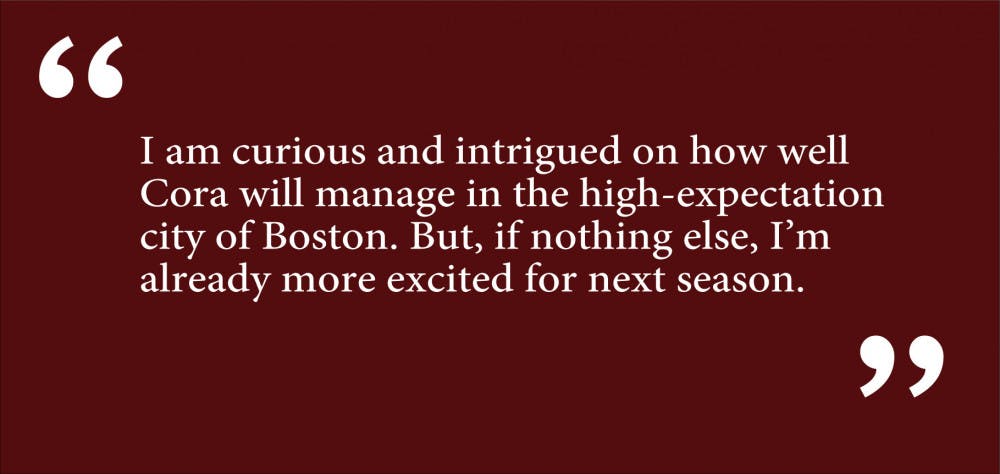On October 22, the Boston Red Sox announced that it hired 42-year-old Alex Cora to be the team’s next manager for the 2018 Major League Baseball season. Replacing former manager John Farrell, Cora will try to inject some youth and energy to a club that sleepwalked through its elimination in the American League Division Series for the second straight season. I love this addition for the Sox, and the news piqued my curiosity based on a trend I’ve been noticing: Is the average age of managers decreasing, and is that youth translating to success? What I found was surprising and a little head-scratching. But younger managers — I’ll say below 50, but there is no strict age limit — are more beneficial to a team’s short and long-term success.
As mentioned earlier, Cora is 42 years old, which is young for a major league manager but not unheard of. The youngest manager in baseball currently is the Tampa Bay Rays’ Kevin Cash — at 39 years old, he’s still athletic enough to be a player. While hiring younger managers seems to be a trend, research proved otherwise.
In 2017, the average age of MLB managers was 55.2 years old, which is about what I expected. In 2007, however, the average age of managers was 52.8, almost three years younger. And if you go back another ten years, to 1997, the average age is 49.4 years old. MLB managers are actually getting older instead of younger. So why did the Red Sox hire a younger manager?
The Red Sox’ 2017 season has ultimately been chalked up as a disappointment despite winning the American League East Division back-to-back for the first time in franchise history. Without David “Big Papi” Ortiz, the Sox’ bona fide captain and face of the franchise for years, the team lacked enthusiasm despite a winning record. The other AL division winners were much more successful: The Cleveland Indians won an American League-record 22 games in a row, and the Houston Astros bonded together as a team of resiliency for the city in the wake of Hurricane Harvey and went on to win the World Series. The teams had something to play for and had fun doing so, while the Red Sox were resigned in their mediocrity and lack of leadership. Something needed to change and manager John Farrell was let go as the scapegoat.
Their new manager, Cora, is a former player — he was on the infamous 2004 Red Sox team that broke their 108-year championship drought — and the current bench coach for the newly-crowned Astros. Cora has an outstanding reputation working with players — something Farrell lacked — and hopes to guide the Red Sox, with a very strong, young core of players, to a third consecutive AL East crown and past the pesky division series. In hiring a young, relatively inexperienced Cora, the Red Sox are taking a blueprint from the Boston Celtics in a plan that began four years ago.
In 2013, the Boston Celtics hired Brad Stevens, 37 at the time, away from his head coaching job at Butler University. He was tasked with guiding a young, rebuilding Celtics squad attempting to move on after the “Big 3” era of Paul Pierce, Kevin Garnett and Ray Allen.
A young, hungry coach was just what the Celtics needed: Someone who wants to win. The Celtics — the players and its front office members — and Stevens grew together, gathering experience and having each other’s backs year after year. Under Stevens, the Celtics have increased their win total every single year, from 25 in 2013 to an Eastern Conference-best 53 wins last year, in which the Celtics lost in the Eastern Conference Championship to the LeBron James-led Cleveland Cavaliers. The Celtics were a good four or five years from seriously contending before Stevens, but now the team has advanced the timeline far beyond what management could havehoped for.
Stevens, at only 41 years old, is already regarded as one of the best coaches in the NBA. The Boston Red Sox are hoping that Cora, who inherits much more talent than Stevens did in 2013, can do the same. But Stevens isn’t the only example of younger coaches having success. The Houston Astros and Los Angeles Dodgers, the two teams in the World Series this year, are managed by A.J. Hinch and Dave Roberts, who are 43 and 45, respectively. Younger managers are finding success and perhaps having a little more fun, as older coaches tend to lack enthusiasm or the spontaneity a team needs.
Of course, there are exceptions. Gregg Popovich of the San Antonio Spurs is 66, and the Indians’ Terry Francona is 58, but both are regarded as a couple of the best coaches in the game. Also, younger coaches don’t always work out. Earl Watson of the Phoenix Suns is only 38 but was let go just three games into the current NBA season.
Not all coaching decisions pan out, and there will be always be some coaches working for decades based on merit and reputation in which case age is not a factor. But, like the Red Sox and Celtics, we’ll see a trend toward more youthful and energetic coaches as long as they continue to succeed at the highest levels.
Cora is ready and excited to manage in Boston. In a statement he released shortly after the news broke he said, “Returning to the Red Sox and the city of Boston is a dream come true for me and my family, and I look forward to working towards the ultimate goal of winning another championship for this city and its great fans.”
I am curious and intrigued on how well Cora will manage in the high-expectation city of Boston. But, if nothing else, I’m already more excited for next season.
Zander Kim ’19 can be reached at alexander_kim@brown.edu. Please send responses to this opinion to letters@browndailyherald.com and other op-eds to opinions@browndailyherald.com.





